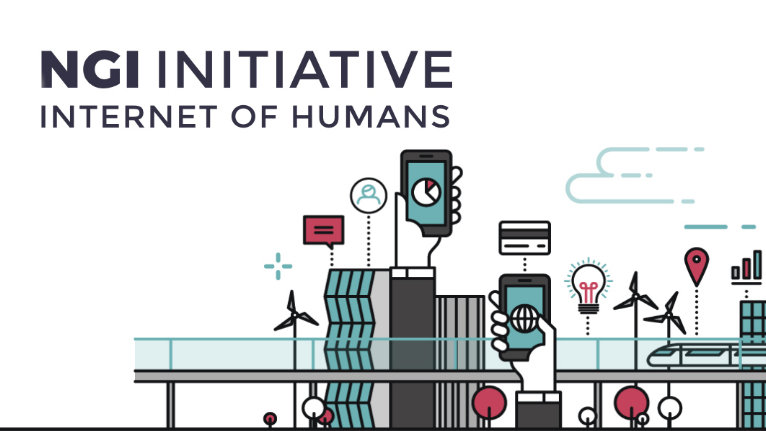just trying lemmy
- 1 Post
- 17 Comments
gitlab.com is a for profit service/company. They have an open-source community edition of Gitlab which you can run on your own server. Codeberg is a non-profit association running the open-source software “forgejo” for you. At Codeberg you can become a member and then you can vote for important decisions and make proposals. People also care about ethics there. Nobody cares about profit. Codeberg runs on donations from members. I think some people feel more respected at Codeberg because the governing body of Codeberg is a subset of its users. If Gitlab cares about you, then probably because a bad user experience would be bad for business.

 557·1 year ago
557·1 year agoSelling railway infrastructure to car manufacturers is generally a bad idea. That’s how the car industry contributed to killing public transportation in the US.
Public transport is their competition. Killing it brings profit. Very simple logic.

 171·1 year ago
171·1 year agoEU subsidizes fossil fuel instead. But how could this be a problem…
Pessimists know the “rebound effect”: improvement in efficiency leads us to do more of the thing. More illumination for example. This (partially) counteracts the good effects.

 1·1 year ago
1·1 year agoStarting from a working example is always a good idea :) then once things start breaking you might have a clue why.

 1·1 year ago
1·1 year agoHave no experience with iced but interesting. Can you share a minimal example of what you’d like to do? At least the source code of
Sandboxreadsfn view(&self).

 4·1 year ago
4·1 year agoYeah sorry, confused things. It’s comes closer to a Mastodon thing. The point is that a big corporation like Facebook does not need to use AGPL code as long as they can just re-implement it. Compared to the total codebase used at Facebook, re-implementing something like lemmy or mastodon does not sound like a big deal. (That’s not an argument against using the AGPL)

 164·1 year ago
164·1 year agoUnfortunately it’s still possible to rewrite a VC-backed clone and start making incompatible changes. Think about Facebook’s “threads.net”. They sure did not take Lemmy source code.

 23·1 year ago
23·1 year agoDid you consider that it might be good for humanity to lock our billionaires into bunkers? We should lock them in in order for us to survive.
The difference is marginal: just a matter on which side you place the door handles.

 7·1 year ago
7·1 year agoI suspect they might be afraid of people, not of climate.

 371·1 year ago
371·1 year ago$25 million? That’s ridiculously cheap.

 16·1 year ago
16·1 year agoAlso fun to read this (by Google employee): https://blog.yoav.ws/posts/web_platform_change_you_do_not_like/ I literally snacked popcorn.

 1·1 year ago
1·1 year agoCool, never saw any of those!

 2·1 year ago
2·1 year agoKiCad. Stay away from closed-source tools. They’ll all try to press out the max amount of money sooner or later. Or get bought and discontinued for eliminating competition.

 01·1 year ago
01·1 year agoTrue. As an outsider I can only speculate what is going on there. As you say, other BigTech-financed projects seem fine.
About big tech companies sponsoring projects: The have an interest that Rust is maintained and many people write good crates which they can use. But they don’t care so much about the world being able to profit from the ecosystem. If they do, then just because this is actually profitable for themselves.
I think this turns into a problem once a project get mainstream. Let’s imagine that in twenty years Rust largely replaced C/C++. It would become part of the worlds critical infrastructure. I don’t think it is good to let the monopolies have the governance. I don’t believe that they act in interest of people. Often it may appear the way. But if it does, I’m convinced that there’s usually a business interest behind. For example, screwing people completely would be bad for business or might trigger the attention of regulation bodies. So they don’t do it. Screwing people very gently such that they get used to it before they notice might happen. Slowly boiling the frog. This type of companies do that on a daily basis.

 0·1 year ago
0·1 year agoAlone the sponsors of the Rust Foundation I find very questionable (Amazon, Google, Huawei, Meta, Microsoft, https://foundation.rust-lang.org/ on the bottom). Unfortunately, corporatism is what you get from corporations. Happy to hear about the crab-lang fork.



Google loves open source likely for another reason than you do.
Google loves open source when they can capitalize on it.
That is, when a big community works on code that Google can use for free to build their monopolistic infrastructure. They love a global community which works for them for free. They might even foster this community as far as it serves their purpose or for image reasons.
However, if they’d truly love open-source, they could open the source code to their core services. But they’d never ever do that. For this reason they also ban the AGPL license internally (https://opensource.google/documentation/reference/using/agpl-policy). The AGPL license would force Google to open their code which relies on AGPL licensed projects. Google hates that.
Google does clearly not stand for the ethical values people usually have in mind when talking about open source. For example when something is competing with them, they’ll hate it. Like ad-blockers or browsers which don’t block ad-blockers like Google chrome does. The core business of Google is about surveillance and advertising. To maximize the profitability of this, then need to violate freedoms of their users (like the freedom to use their service while blocking ads). This is in direct conflict with the ethical values often implied by free and open-source software.
So if somebody tells you “Google loves open-source and contributes a lot”, think about what it really means.